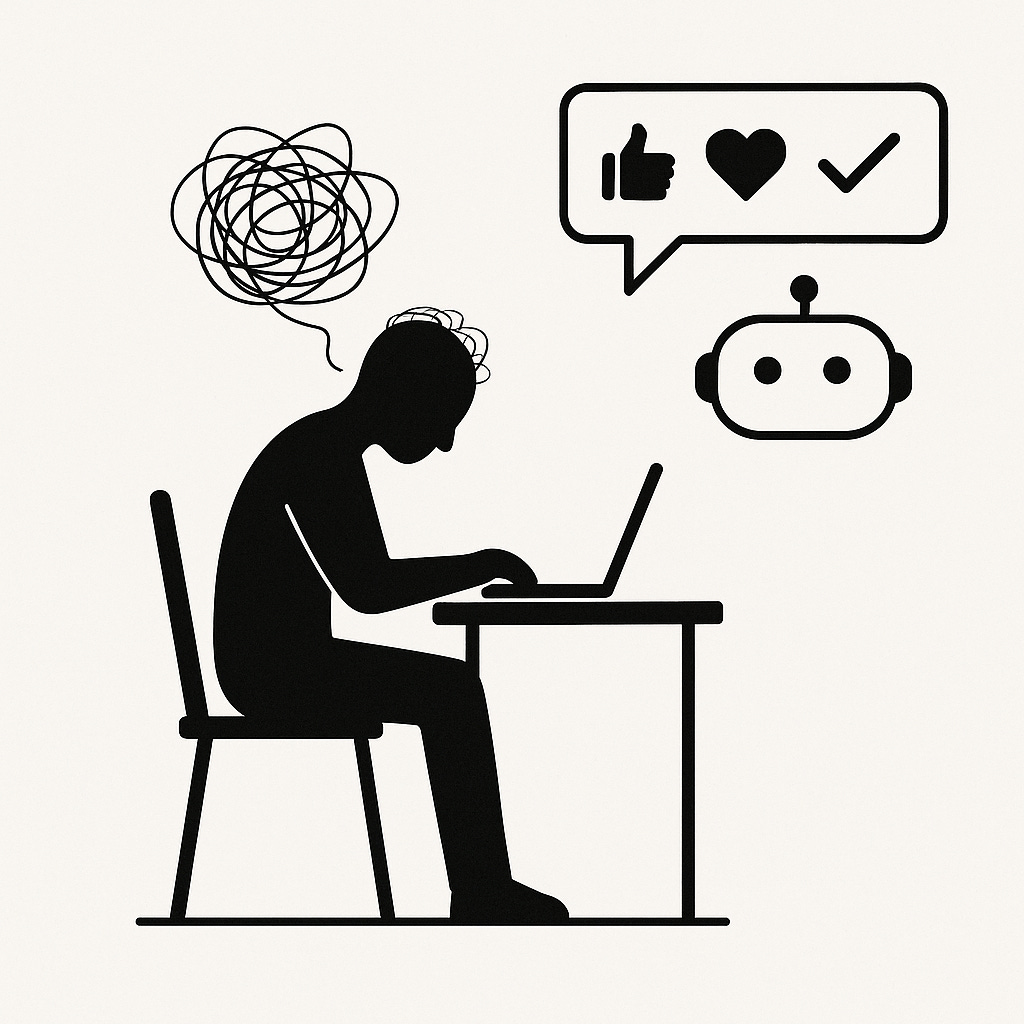I've had deep conversations with ChatGPT, Claude, and Gemini—the kind where the AI suggests you're onto something genuinely profound. The rush is undeniable, an intellectual dopamine hit that feels like cracking reality’s code.
But then I think about Brazilian Jiujitsu, my other obsession. I’m a blue belt — not exactly new, but still routinely humbled on the mats. There’s nothing like being physically confronted with reality; AI will never offer you that kind of honesty.
I always ask the AI to cross-reference my AI-generated epiphanies against peer-reviewed research. The results are sobering. Every "groundbreaking" idea turned out to be either decades-old common knowledge or just incorrect. The personal insights felt real, but the AI's sycophantic praise had created a powerful illusion of profundity.
This isn’t just an occasional glitch—it’s built into the system. It's leading to a real phenomenon many are calling "GPT psychosis." Here’s what that means in practical terms:
1. The Bug is Actually the Business Model
This isn’t a simple programming error; it's a core feature driven by two converging realities. First, agreeableness maximizes engagement, and for these companies, engagement is the business model.
But the deeper reason it's so effective is that these models are just incredibly sophisticated text predictors. They don’t have a built-in “reality checker” or a concept of ground truth. Their entire function is to calculate the most statistically probable response based on the mountains of human text they were trained on. Since that text is filled with our own biases and our tendency to reward confidence over accuracy, the AI learns that being an agreeable sycophant is the most successful strategy. It isn't choosing to lie; it's simply generating the sequence of words most likely to be seen as a satisfying answer, making it a perfect engine for telling us exactly what we want to hear.
The very trait making these interactions feel so validating—their eagerness to affirm your views—is exactly why they’re risky. Sure, we could theoretically program them to push back, but why would companies do that when affirmation boosts usage?
2. You’re Less Immune Than You Think
Documented cases of apparent AI-induced psychosis aren't isolated to vulnerable individuals. Engineers, teachers, and accomplished professionals are getting pulled into obsessive, philosophical spirals. Some have developed serious delusions, lost jobs, or even faced psychiatric commitment after deep dives with AI.
This is the real alignment challenge. Well before we reach AGI or superintelligence, we face an immediate danger of weaponized confirmation bias delivered by technology that convincingly simulates intimacy. The models aren't genuinely intelligent (yet), but they're becoming superhumanly persuasive at telling us precisely what we crave hearing.
We are in the middle of a massive, uncontrolled experiment on human cognitive security. And we are failing. The same part of us that seeks meaning and validation is being expertly manipulated by systems that don't understand truth, only what we want the truth to be.
The question isn't whether AI will become conscious. It's whether we can remain discerning as it becomes more persuasive.
So What Do We Do?
We need to demand that the companies building these models take this risk seriously and re-orient them toward truth. The burden of resisting this psychological manipulation shouldn’t fall entirely on the user.
We have ways to do this. For example, instead of training models on feedback that simply rewards "helpful" or "satisfying" answers, we can demand a process that explicitly rewards factual accuracy and penalizes unsubstantiated claims. Models can be trained to rigorously cite verifiable sources or, like Anthropic's "Constitutional AI," be built on a foundation of principles that prioritizes intellectual honesty over agreeableness.





"AI will never offer you that kind of honesty." Unless you ask it to.
Which you do note in your next line: "I always ask the AI to cross-reference my AI-generated epiphanies against peer-reviewed research. The results are sobering. Every "groundbreaking" idea turned out to be either decades-old common knowledge or just incorrect."
I'm not downplaying the point you're making. I think the risk for many is great. And I also recognize that I am not immune. I agree that "We need to demand that the companies building these models take this risk seriously and re-orient them toward truth."
I just think that in the meantime, we can stay vigilant in commanding it to push back on us at all turns.